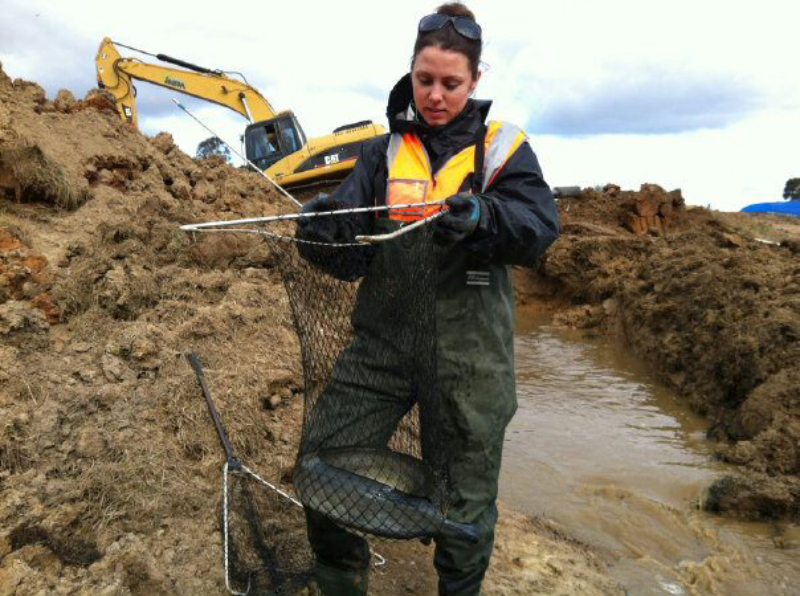This day is a fantastic opportunity to highlight the incredible achievements of female scientists.
By celebrating their contributions, we hope this day inspires the next generation of girls and young women to pursue careers in science, technology, engineering, and mathematics (STEM).
We sat down with Squadron Energy’s Environmental Offsets Officer Kristina Rajkovic, who has developed an exciting career at Squadron Energy.
Kristina’s work plays a valuable role in Squadron Energy’s mission to improve the environment for current and future generations by leading Australia’s transition to renewable energy.

How did you get into this field of work and what did you study?
My interest in the environment and science started very early on when my parents used to take me for walks through the deciduous forests of Serbia as a kid.
It took me such a long time to work out what I wanted to do ‘when I grow up’ but once I saw it, I knew immediately.
I saw a brochure for an Environmental Science course that had a picture of someone doing water sampling in a creek and my brain said:
“That! Whatever that is I want to do that.”
I finished a Bachelor of Science in Environmental Forensics degree pretty soon after.
The degree was a mix of keystone science fundamentals with environmental law and forensics mixed in there.
From there I was exposed to people in the industry and through networking and saying yes to opportunities.
I spent most of my career as an environmental consultant giving advice about environmental impacts before finally landing at Squadron Energy.
Can you tell us a bit about your role as Environmental Offsets Officer?
Protecting the environment is what I am passionate about.
In my role I am involved in delivering environmental offsets required by law to offset the unavoidable impacts that our projects have.
What this means is as much as we try to avoid impacting on native vegetation or threatened species habitat, there is always some remaining impact that needs to be offset by protecting and restoring similar land elsewhere.
How does your background in STEM play an important part in your day-to-day role now?
Although my job isn’t a cliche vision of a scientist in a lab coat, my background in science has really set me up with the fundamentals of how the systems driving our planet/universe work.
As well as the basics of the scientific methods that help me distil information into what is likely to be true and what is probably a hoax – which is a very important skill in life.
Although I now work in an office writing reports, analysing data or making maps – I am always leaning back on my scientific knowledge.

Do you think there are still some barriers for women and girls to pursue careers in STEM related fields?
The tricky thing about the barriers is that they can be invisible. No one is standing at the STEM door stopping you from entering. It’s much deeper and problematic than that.
The system we live in conditions us to believe certain patterns about what it means to be a woman that make you believe the unhelpful paradigms such as: “you aren’t worthy, you aren’t smart enough, you aren’t tough enough, that’s not your role.”
This makes us stand in our own way.
So I think the biggest barrier to women breaking into any industry that is dominated by men is the perception of where we belong and what we are capable of.
It really helps for us to see women ahead of us doing the things we want to do to start to break these thought patterns.
Would you encourage other young girls to pursue a career in STEM?
Absolutely. STEM is such an exciting field to be in right now.
You can create and influence so much change.
The renewable energy industry is growing so rapidly in Australia and there is a lot of work to be done.
We need more innovation and I think more women entering the industry will continue to provide a fresh perspective on the big questions around climate change.
We need to keep encouraging girls to get into STEM until we feel like we don’t need events like International Day of Women and Girls in Science anymore because we feel like we belong.